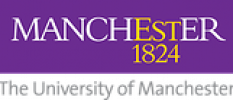© Pint of Science, 2025. All rights reserved.
Come join us for a deep dive into linguistics. An evening exploring Mancunian accents and identity, strategies on how to support bilingual children learning English as an additional language, and how heritage languages can disappear from everyday use.
Ways to Support Bilingual Development at Preschool
Dr. Jacky Chan
(Senior Research Associate, Lancaster University)
I will about an experiment that compares the strategies that monolingual and bilingual children use to learn the meaning of words. Then, I will present findings from a preschool classroom observation that looks at how preschool teachers speak to monolingual children and children learning English as an additional language and how language input shapes language development. Drawing on the findings from these studies, I will discuss some potential strategies that preschool teachers can adopt to support EAL children’s language development. Lucid.ac.uk/who-we-are/our-people/researchers/jacky-chan
Manchester Voices: Accent, dialect and identity
Dr Rob Drummond
(Reader in Sociolinguistics, Manchester Metropolitan University)
The Manchester Voices project has gathered voices, insights and attitudes from people across the ten boroughs of Greater Manchester. Last year, 400 people climbed aboard our Accent Van or took part virtually to tell us a little bit about the way they speak. As well as their accent and dialect, they were asked about their local area and what it means to them. People also told us how they feel about all the different accents and dialects from the region by creating their own online dialect map. I’ll tell you all about what we’ve found out, and why it’s important to embrace linguistic diversity.
Keeping and losing immigrant family languages in the UK
Khoi Nguyen
(PhD Student, The University of Manchester)
Globalisation has made Manchester and the UK in general more linguistically diverse, and multilingualism can be heard and seen on a daily basis. However, immigrant minority languages often do not get transmitted to the generations born in the UK, and in many cases they disappear from everyday use after three generations. This talk will provide a general introduction to questions of multilingualism before presenting some examples of how so-called heritage languages can continue to play a role for ethnic minorities, even when they cease to be used as the primary medium in everyday life.
Map data © OpenStreetMap contributors.
